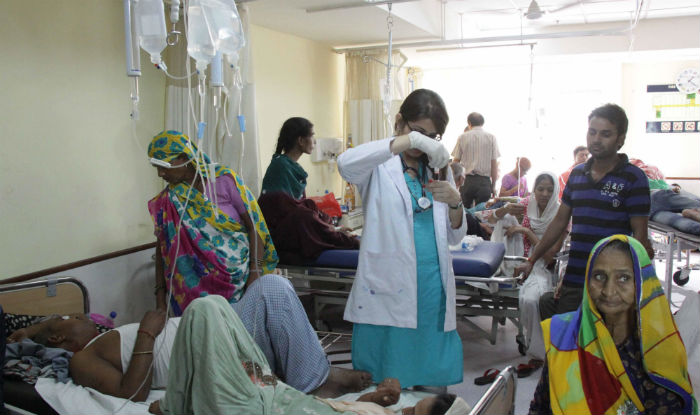
Failure to inform patient’s relatives led to accusations for these doctors
On January 31, 2017, veteran politician, E Ahamed was rushed to the Dr Ram Manohar Lohia Hospital in New Delhi after suffering a massive heart attack. He was immediately put in life support system at the ICU. Notwithstanding the doctors’ multiple efforts, he passed away.
Allegation of lack of ethics
However, the patient’s daughter Fouziya Shersad-who is a doctor, and her husband, Babu Shersad(also a medical practitioner) have raised concerns about the way the doctors in the hospital handled the emergency. In fact, they alleged that the patient’s family was treated in a way that went against medical ethics.
As per Fouziya, she and her husband reached the hospital at 8:30 PM on January 31. But the doctors didn’t allow them to see her father. They had to wait outside the trauma care ICU without knowing what went on inside, says the doctor who is also a faculty member of the Pathology department at the Dubai Medical College.
The doctors, she says used the chest compression device for over 10 hours- when ideally it should be used for a maximum of 40 minutes. She claimed that the overuse of the equipment may be the reason why his face was bloated.
Fouziya disagreed with the treatment that was provided to her father. Apparently, she wasn’t informed of the treatment provided to the patient even after she reached the hospital.
As per Dr Sanjay Nagral, a Mumbai based surgeon and the publisher of the ‘Indian Journal of Medical Ethics’ doctors can’t deny the relatives permission to briefly see someone in ICU. Doctors, he says, can deny access only in cases when the patient is undergoing a surgery or a procedure.
Doctors should, indeed inform the relatives of the status of the treatment periodically, he said. He also said thatiIn Ahmed’s case the duty doctors ought to have consulted the treatment methods with both his daughter and sin-in-law.
The doctors are answerable to the patients, he says, not to the hospital.
Doubts regarding the politician’s medical condition were raised once the hospital authorities disallowed the family members or his colleagues to visit him in the ICU. Some political leaders even called for an investigation into the way the hospital handled the case.
The hospital, for its part has denied that it has suppressed or delayed the news about Ahmed’s death, claiming that all possible efforts were made to save his life.
Lack of clear protocols a problem
Such accusations and counter-arguments aside, the case also puts in the spotlight the fact that there exists no common treatment protocol which hospitals should follow when dealing with patient’s families.
The question of interacting with families of patients in intensive and critical care has been pondered by doctors in multiple countries. For example, guidelines which were developed in Korea mentions shared decision-making by which “physicians work together with patients and their families to define the patient’s healthcare values, beliefs, and treatment preferences.” In this model, the physician ought to recommend a model which s/he trusts to be the closest to the values held by the patient.
That’s an idea which Indian doctors too have accepted.
In 2012, the Indian Society of Critical Care Medicine developed an ethical framework which sought to improve the quality of care of the dying patients in the ICU. Surrogates need to be well informed and free from incapacitating anxiety and depression to be able to function effectively as substitute decision-makers for the patients,” says the guideline.
Also, according to Dr Puneet Bedi, obstetrics and gynaecology consultant at Indraprastha Apollo Hospital in New Delhi, doctors must inform the family members immediately after a patient’s death.
Image credits: patrika.com
Images may be indicative